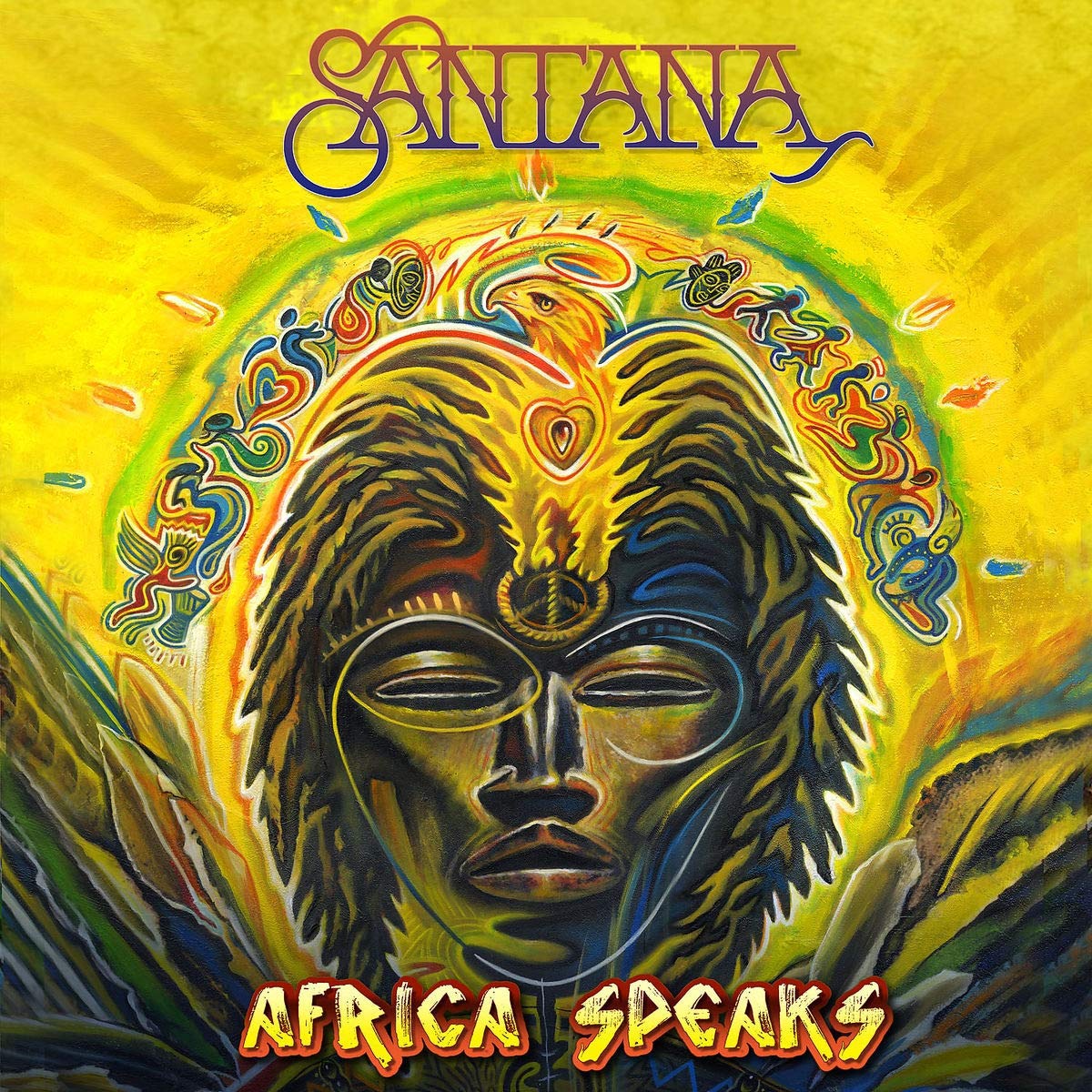Santana: Africa Speaks

“All and everything was conceived here in Africa: the cradle of civilization.” Carlos Santana speaks these words during the introductory title track of his new album, Africa Speaks , part of an invocation that invites listeners into his world of African-inspired rhythms, searing guitar and powerful vocals. The record, which quickly follows up his EP from earlier this year, In Search of Mona Lisa , is a strikingly impressive effort from the guitar legend, who recently said in an interview with Relix ’s sister site Jambands. com, “Everyone knows that my first passion is African music, since the beginning.” Santana’s aim here is not to impose his will and skill onto the history and rhythms of Africa, though. Truly, his guitar work on the LP, while unsurprisingly wonderful, may not actually be the main draw of these 11 tracks. Nearly all of the songs on Africa Speaks feature the ineffably affecting voice of Concha Buika, frequently known simply as Buika, a Spanish singer who channels her African roots (as the daughter of two political exiles of Equatorial Guinea) to belt out soaring and intricate melodies throughout the album. In that same interview, Santana himself calls Buika “a combination of Nina Simone, Etta James, Tina, Aretha—but she doesn’t sound like them.” Buika certainly wields the power of those iconic voices, going head-to-head with Santana’s acidic guitar and a fiery organ on “Batonga,” and later anchoring both the pop sensibilities of “Yo Me Lo Merezco” as well as the Latin American jazz of “Breaking Down the Door,” a tune more in line with classic Santana compositions. Santana and his band don’t exactly fade into the background on Africa Speaks , of course, and the guitarist is as sharp as ever on these songs, maybe most notably on “Blue Skies,” the one track featuring lead vocals from British singer Laura Mvula. The three-part tune is bookended with a light, piano-driven groove but features a raucous middle portion in which Santana—using, as he does throughout the album, a Stratocaster instead of his usual signature PRS—absolutely lets loose on his fretboard, conjuring images of a young guitarist with a contorted face on the Woodstock stage in 1969, coaxing fire and magic out of his instrument.




















